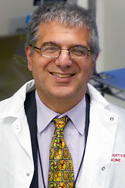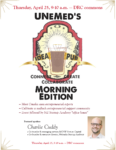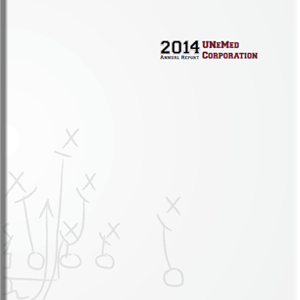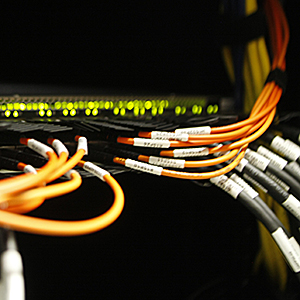by Vicky Cerino, UNMC
OMAHA, Neb. (July 1, 2014)—The University of Nebraska Medical Center (UNMC) and University of California San Francisco (UCSF) have been awarded a $10 million grant from the federal Centers for Medicare & Medicaid Innovation to create a new web-based model of dementia care. It will provide around the clock consultations for patients and their families, online education and, for some patients, remote monitoring with smart phones and home sensors.
The Dementia Care Ecosystem will not replace clinicians, but rather bring educational resources developed over the past decade by UCSF’s Memory and Aging Center (MAC) to patients and their families, while enabling clinicians to monitor their patients from afar.

Dr. Bonasera
Steve Bonasera, M.D., Ph.D., associate professor of geriatrics at UNMC and co-investigator of the grant, said the project has the potential to give patients with Alzheimer’s disease, their families and care partners, advice and expertise no matter where they live or their income.
“We hope to show that by providing comprehensive, personally tailored services, we can keep everyone healthier, happier, and decrease time spent in hospitals,” said Dr. Bonasera, who did his fellowship at UCSF. “I think the interventions in this trial will keep people with dementia at home longer, and at the same time lower family and caregiver stress.”
Beginning this fall, 2,100 patients, all diagnosed with varying stages of dementia, will be enrolled through San Francisco General Hospital and Trauma Center, UCSF Medical Center and the UCSF MAC clinics and Chinatown Clinics, as well as UNMC and other organizations in Nebraska serving the elderly.
Each patient will have a navigator, who will check in by telephone or with a personal visit, as well as be monitored through an Internet dashboard, created with the help of Salesforce. Navigators will be people without a formal medical degree who will be supervised closely by nurses, social workers and pharmacists with expertise in dementia care.
The navigators will triage calls, making sure that patients see nurses and doctors when necessary and helping with other things that don’t require medical expertise, such as a hazardous situation in the home that could cause the patient to fall. Meanwhile, patients and their families will be able to get training online to help make financial plans and work through tough medical decisions before their loved ones have reached a crisis stage.
“Our ecosystem will have wisdom and experience continuously piped in every day to caregivers who are overwhelmed,” said Bruce Miller, M.D., director of the MAC, who holds the A.W. and Mary Margaret Clausen Distinguished Professorship in Neurology at UCSF. “Typically, these people have a hard time getting through to anyone in the medical system.”
Researchers hope to create a virtual care system that is supportive enough to protect the mental and physical health of caregivers, who tend to neglect their own needs. If caregivers learn to cope better, patients may be able to remain at home longer before moving into assisted living.
Last year, according to the Alzheimer’s Association, about 15.5 million people in the United States were caring for friends and family members with dementia. Nearly 60 percent said the work was highly stressful and more than a third reported symptoms of depression.
Some patients in the study will use smart phones and electronic wristbands to record activity levels, count the number of steps they take and measure how far they range from home. And a small number will have sensors placed inside their homes to detect behavior changes that could signal the onset of a health problem, like being up all night, staying in bed all day or going to the bathroom more times than usual.
The system also will monitor the drugs that patients take and flag high risk and inappropriate medications that can send patients with certain forms of dementia to the emergency room.
Initial projections are that the improved caregiver support, more continuous access to medical help and medication management will reduce emergency room visits by a half, cut hospitalizations by almost a third and delay the move into a nursing home by six months. This is projected to save $4.3 million over the three years of the grant.













